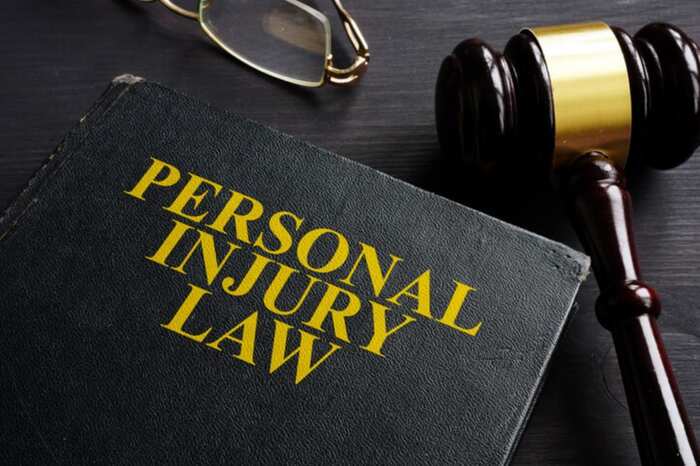A personal injury lawsuit can help you get compensation if someone else’s negligence caused you harm. But rushing into it without knowing the basics can lead to mistakes that cost you time and money. Studies show that around 95% of personal injury cases settle before trial, but getting a fair settlement depends on how well you prepare. Before filing your lawsuit, here’s everything you need to know to strengthen your case.
1. Understanding Personal Injury Lawsuits
A personal injury lawsuit is a legal claim filed when you suffer harm due to someone else’s carelessness. These cases cover incidents like:
- Car accidents: One of the most common personal injury claims. In 2022 alone, over 46,000 people died in car crashes in the U.S.
- Slip-and-fall accidents: Over 1 million people visit emergency rooms every year due to slip-and-fall injuries.
- Medical malpractice: Nearly 250,000 deaths per year result from medical errors, making it one of the leading causes of death in the U.S.
To win your case, you must prove negligence—that the other party’s actions (or lack of actions) directly caused your injuries. Personal injury attorneys can help you understand more.
2. Key Steps to Take Before Filing
a. Seek Medical Attention Immediately
Your health should be your top priority. Even if your injuries seem minor, see a doctor. Some injuries, like concussions or internal bleeding, might not show symptoms right away. Plus, medical records act as evidence, proving that your injury happened because of the accident.
b. Gather and Preserve Evidence
A strong case depends on solid evidence. Collect:
- Photos of the accident scene, your injuries, and any property damage.
- Contact details of witnesses.
- Police reports, medical records, and receipts for expenses related to the injury.
- If possible, keep a journal to document your pain, recovery, and emotional distress. This can help show the impact of the injury on your daily life.
c. Know Your Statute of Limitations
Every state has a deadline for filing a personal injury lawsuit, called the statute of limitations. In most states, you have two to three years from the date of injury to file. However, some exceptions apply. Missing this deadline can mean losing your right to compensation.
3. Evaluating Your Case
Not every accident qualifies for a lawsuit. Ask yourself:
- Was someone else clearly at fault?
- Can I prove that their actions caused my injury?
- What are my damages? (Medical bills, lost wages, pain and suffering, etc.)
If you share some blame for the accident, your compensation might be reduced based on your percentage of fault—this is called comparative negligence.
4. Hiring the Right Personal Injury Lawyer
You might be tempted to handle your claim alone, but personal injury laws can be complex. A lawyer increases your chances of getting fair compensation.
What to Look for in a Lawyer:
- Experience with cases similar to yours.
- A strong track record of winning settlements or trials.
- Good communication skills—someone who explains things clearly.
Some lawyers focus on quick settlements, while others are ready to go to trial if needed. Make sure you choose one that aligns with your case goals.
5. The Legal Process: What to Expect
a. Filing the Lawsuit
Once you decide to move forward, your lawyer will file a complaint outlining your case. The defendant (the person or company you’re suing) will then be notified.
b. The Discovery Phase
Both sides gather and exchange evidence. You may need to:
- Answer written questions (interrogatories).
- Give a recorded statement (deposition).
- Provide medical records and other documents.
This stage helps determine the strength of each side’s case.
c. Settlement vs. Trial
Most cases end in a settlement, meaning you and the other party agree on a compensation amount before going to court. A trial happens if no agreement is reached. While trials can lead to higher payouts, they take longer and come with risks.
6. Common Pitfalls to Avoid
Accepting a Quick Settlement
Insurance companies often offer low settlements to close cases fast. Don’t accept the first offer without reviewing it. Once you settle, you can’t ask for more money later, even if your medical bills increase.
Posting on Social Media
Anything you post can be used against you. Even a picture of you smiling at an event could be twisted to suggest your injuries aren’t serious. Stay off social media or keep posts private until your case is resolved.
Ignoring Medical Advice
Skipping doctor’s appointments or stopping treatment too soon can hurt your case. The other side may argue that you weren’t really injured. Follow your doctor’s recommendations to show that your injury is serious.
The Sum-Up!
Filing a personal injury lawsuit takes preparation. You need evidence, medical records, and an understanding of the legal process. Rushing into a claim without proper knowledge can lead to mistakes that weaken your case. By taking the appropriate steps early, you increase your chances of getting the compensation you deserve.


